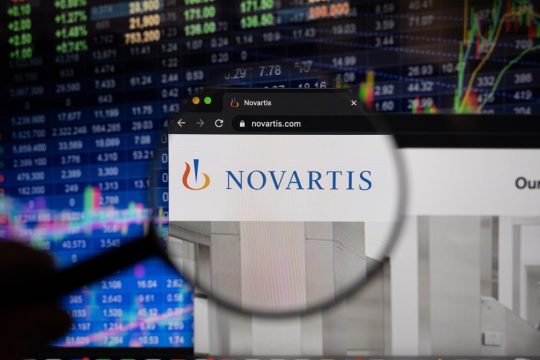Advertisment
ASCO 2012 Report – Investigational drug shows promise in advanced melanoma, kidney cancer, and NSCLC
by Marybeth Burke – The investigational drug BMS-936558 caused tumour shrinkage in up to a quarter of patients with advanced melanoma, kidney and NSCLC cancers, according to a study released at the American Society of Clinical Oncology (ASCO) in Chicago in June.
“It’s exciting to see this degree of anti-tumour activity from a single agent among patients with a range of cancers that had progressed despite standard therapies,” said study author Suzanne Topalian, MD, Professor of Surgery and Oncology at the Johns Hopkins University School of Medicine, Baltimore, MD, at an ASCO press conference. She presented data from Abstract 2509.
“We were especially surprised to see activity in nearly 20% of patients with lung cancer, who are historically unresponsive to immune-based therapies. These findings mark what is probably the strongest anti-lung cancer activity observed to date with any immunotherapy,” she said.
“Historically immunotherapy has not been successful in NSCLC but there has been a resurgence in the past decade,” added Julie R. Brahmer, The Sidney Kimmel Comprehensive Cancer Center at Johns Hopkins University, who presented data from Abstract 7509 which focuses on the patients with advanced NSCLC in the broader study, in a separate session.
BMS-936558 is an antibody drug that targets a key pathway in T-cells called programmed death 1 (PD-1), which inhibits the body’s immune response to cancer. Blockade of PD-1 can overcome immune resistance and mediate tumour regression. By blocking this pathway, BMS-936558 may re-activate the immune system to fight tumour cells.
Patients received BMS-936558 1V Q2WK at doses of 0.1 to 10.0mg/kg during dose-escalation and/or cohort expansion. Tumours were assessed by RECIST 1.0 after each therapy cycle (4 doses). Patients received up to 12 cycles or until PD or CR.
As of July 1, 2011, 240 patients with melanoma (MEL, n=95), renal cell (RCC, n=33), colorectal (CRC, n=19), NSCLC, n=75), castrate resistant prostate (CRPC, n=17) cancer, and unknown (n=1) were treated. Median duration of therapy was 15 weeks, maximum was 120 weeks. MTD was not reached, according to the abstract.
Grade 3-4 related adverse events occurred in 13% of patients. Adverse events included pneumonitis, hypophysitis, hepatitis, colitis and thyroiditis. There were 2 related deaths due to pulmonary toxicity. In evaluable patients receiving ³ 2 cycles, OR (objective responses; CR or PR) were observed in MEL, RCC, and NSCLC. Aggregate response rates [(OR+unconfirmed PR)/evaluable patients] were: MEL (0.1-10mg/kg, 20+4/90; 27%), RCC (1-10mg/kg, 8+2/32; 31%), and NSCLC (1-10mg/kg, 10+3/73; 18%), according to the study.
OR were durable: among 38 patients with OR, 28 were enrolled ³ 1 year before data lock, and 18 of these had responses lasting ³1 year. Ten patients on study <1 year had ongoing OR with a duration of 1.8-5.6 months. Several patients had prolonged SD. Some had a persistent reduction in overall tumour burden in the presence of new lesions and were not categorized as responders, according to the results.
To assess PD-1 ligand (PD-L1) as a potential predictive biomarker, IHC was performed on pre-treatment tumour biopsies from 29 patients. Of 16 patients with PD-L1 (+) tumours, 50% achieved OR vs. none with PD-L1 (-).
“BMS-936558 can be administered safely in an outpatient setting to heavily pretreated patients, with durable clinical benefit in NSCLS, MEL, and RCC. These findings support the importance of the PD-1 pathway in cancer therapy across multiple histologies. Preliminary data correlating PD-L1 expression in pretreatment tumour biopsies with clinical outcomes will be further explored. Controlled clinical registration trials of BMS-936558 in patients with NSCLC, MEL, and RCC are planned,” Dr Topalian said.





